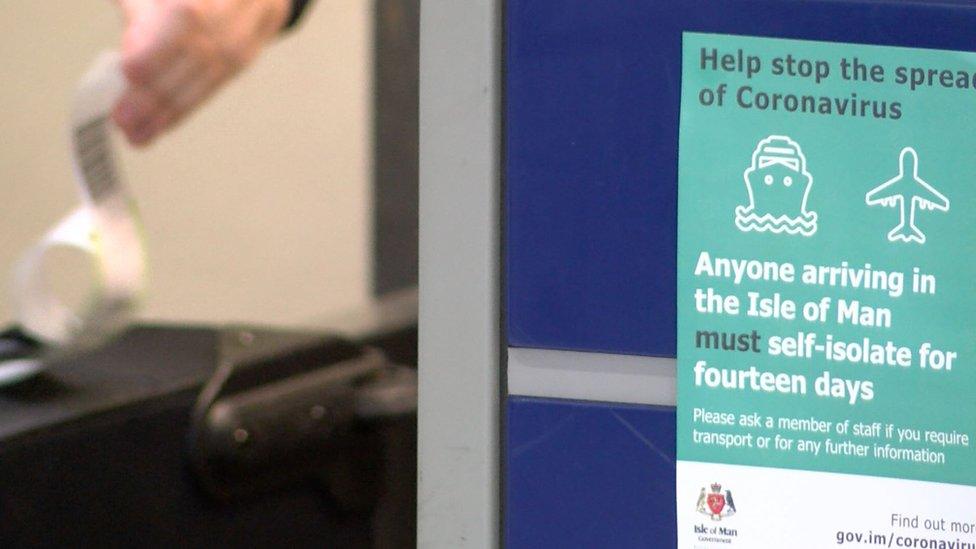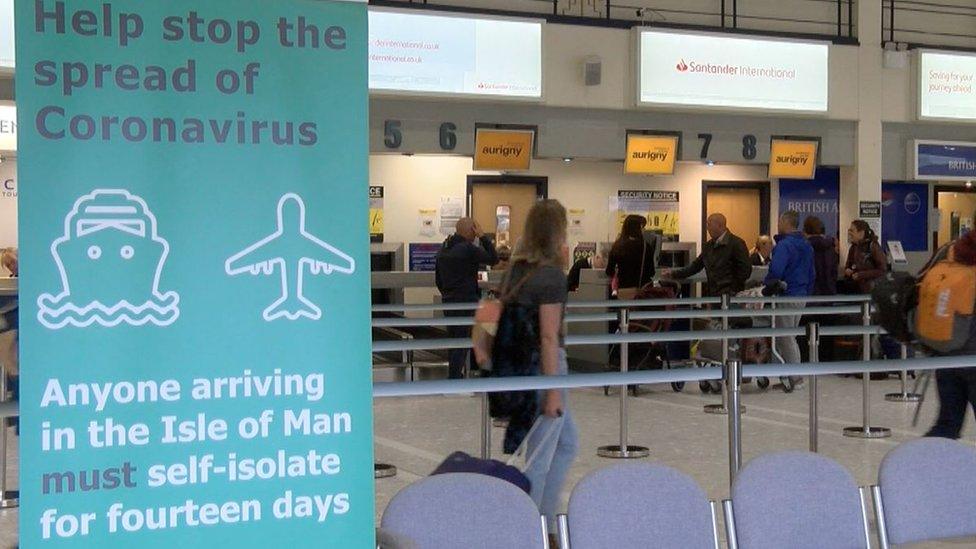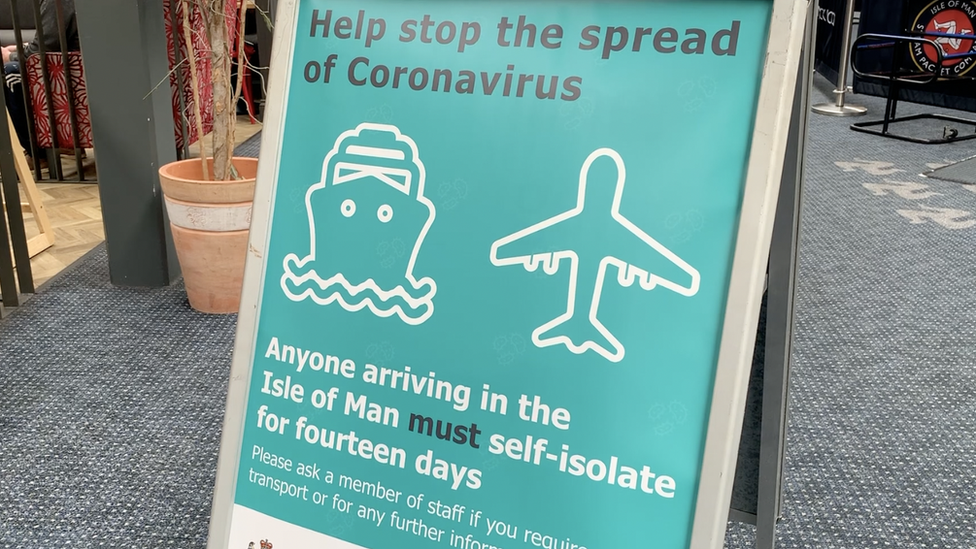Isle of Man removes seven-day isolation option
- Published

There have been 345 cases of coronavirus on the Isle of Man
Residents arriving on the Isle of Man from Monday will no longer have the option to self-isolate for seven days due to the increase of Covid-19 cases in the UK, the chief minister said.
Howard Quayle said the UK situation was "deteriorating" and the decision had been made to protect the island.
Since September, returning residents could pay for a test after seven days and leave home, under certain restrictions, if it was negative.
The island has had 345 Covid-19 cases.
Residents arriving on the island before Monday 12 October will still be able to request a test on their seventh day of self-isolation.
Those who test negative can go back to work, provided their job does not require contact with the public, and go to the supermarket but cannot attend any indoor venues such as pubs.
Following the arrest of two groups of key workers, five of whom were jailed, in the last two weeks, changes have been made to how government restrictions are communicated, Mr Quayle said.
Announcements will be made over the public address systems on plane and ferry services, while a separate security lane has been created for arriving key workers to allow border officers to explain regulations and punishments for breaching them.
Additional signage has also been introduced to the airport and the sea terminal.
Mr Quayle said there were "no excuses for ignorance of the law" and anyone travelling to the island must go straight to their place of self-isolation."
"No stopping for petrol, sausage rolls or alcohol", he added.

Why not follow BBC Isle of Man on Facebook, external and Twitter, external? You can also send story ideas to northwest.newsonline@bbc.co.uk, external
- Published3 September 2020

- Published1 October 2020

- Published29 September 2020
